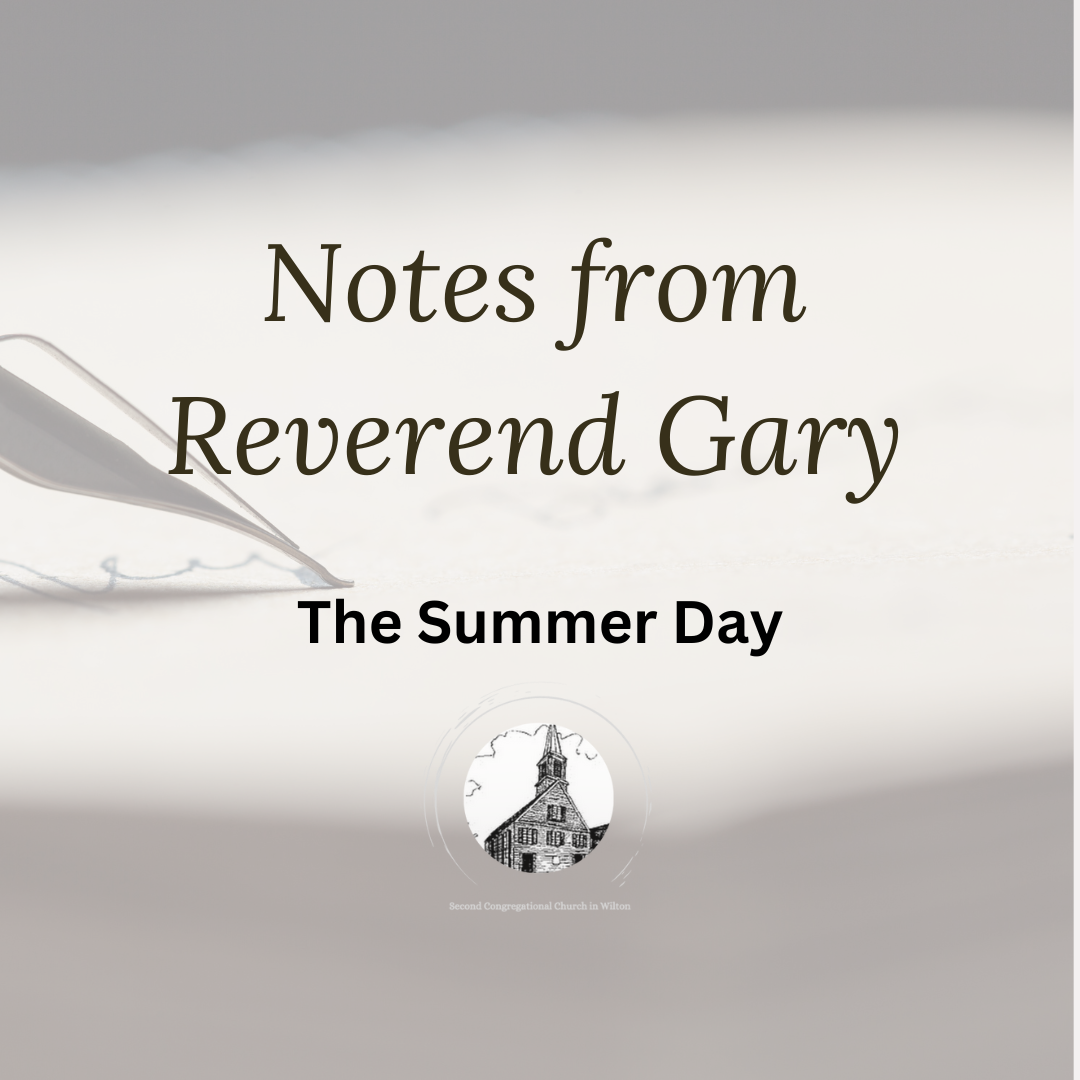Dear Friends,
One of my favorite poems is “The Summer Day,” by Mary Oliver. Here it is:
“Who made the world?
Who made the swan, and the black bear?
Who made the grasshopper?
This grasshopper, I mean—
the one who has flung herself out of the grass,
the one who is eating sugar out of my hand,
who is moving her jaws back and forth instead of up and down—
who is gazing around with her enormous and complicated eyes.
Now she lifts her pale forearms and thoroughly washes her face.
Now she snaps her wings open, and floats away….”
Let’s save the rest of the poem for later. “Who made the world?” the poet asks. Centuries ago the theologians and poets of ancient Israel gave their answer to that question in the opening words of the book of Genesis: “In the beginning God created the heavens and the earth….”
Genesis chapter 1 is a hymn of praise to God the Creator. The poem celebrates the wonder and beauty of creation. In the creation story there are repetitive phrases describing each day of creation: “And God said, ‘Let there be….’” “And it was so….” “And there was evening and there was morning, the 1st, 2nd, 3rd day,” and so on. Also running through the story is the recurring expression, “And God saw that it was good….”
God saw that it was good—that the whole creation was lovely, pleasing, full of beauty and harmony. The creation was an expression of God’s own character. God was delighted and took joy in it. “Who made the grasshopper?” the poet asks. In Mary Oliver’s poem we see the world through the poet’s eyes. I wonder, then, what it means to see the world through God’s eyes?
Summer is a wonderful time to see the world through God’s eyes. Summer is the season of abundance. We’re outdoors more, we’re closer to the earth, and we walk in the freshness of God’s creation. If we pay attention, we can see God’s gifts. We can know something of God and the glory of God in nature itself.
I think that to see the world through God’s eyes means to pay attention to the world around us. To really notice, to be aware of the trees, the flowers, the birds, the face of a friend, the laughter of children.
Now for the rest of Mary Oliver’s poem:
“I don’t know exactly what a prayer is.
I do know how to pay attention, how to fall down
into the grass, how to kneel down in the grass,
how to be idle and blessed, how to stroll through the fields,
which is what I have been doing all day.
Tell me, what else should I have done?
Doesn’t everything die at last, and too soon?
Tell me, what is it you plan to do
with your one wild and precious life?”1
The poet’s question stays with us: “Tell me, what is it you plan to do with your one wild and precious life?” Let’s pay attention. Let’s see the world through God’s eyes
during every season of our lives.
Grace and peace,
Pastor Gary
1Mary Oliver, “The Summer Day,” in New and Selected Poems (Boston: Beacon Press, 1992), p. 94.
